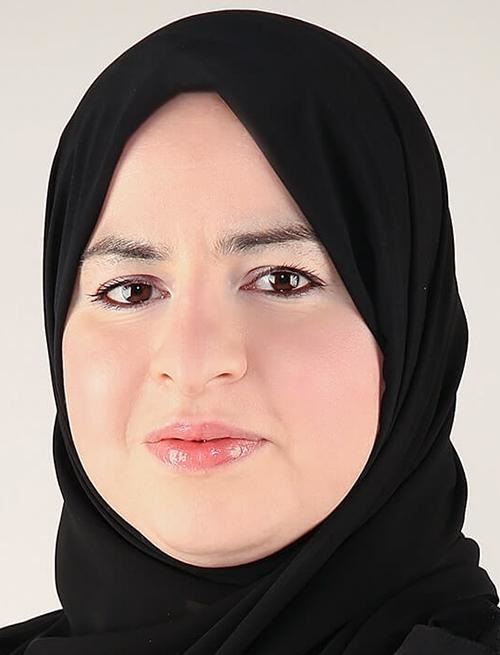Requirement reflects increasing worldwide focus on preventing genetic disorders through clinical laboratory genetic testing
In a significant move, Abu Dhabi’s Department of Health has established a new policy that requires engaged couples to get genetic testing done along with clinical laboratory blood testing before walking down the aisle.
Abu Dhabi, the capital city of the United Arab Emirates (UAE), is following an established public health policy of testing soon-to-be-married couples for specific disease conditions. Now, however, instead of just infectious diseases, it is testing for specific genetic conditions as well.
The new policy is part of an initiative implemented by the Ministry of Health and Prevention (MoHaP) “in partnership with the Department of Health-Abu Dhabi, the Dubai Health Authority, Emirates Health Services, and Dubai Health, as well as academic, medical, and technological institutions,” according to a MedTech World article.
This marks a first for Arab nations and also demonstrates a shift in the standard of care for those regions.
“Abu Dhabi continues to set a global standard in proactive healthcare, marking a significant paradigm shift from traditional and reactive healthcare to informed and holistic health planning and decisions,” said Asma Al Mannaei, DrPH, Director of Health Quality and Executive Director of the Research and Innovation Center at Abu Dhabi Department of Health (DOH), in a press release.
Clinical laboratory managers and pathologists in the US will note that the move in Abu Dhabi mirrors a similar trend in this country. A growing number of children’s hospitals are using genetic testing such as rWGS (Rapid Whole Genome Sequencing) as a pro-active screen for newborns where family history indicates the value of such testing.
Authors of a JAMA Network 2024 report titled, “National Rapid Genome Sequencing in Neonatal Intensive Care,” looked into the possibility of implementing genetic testing nationwide. They determined that “clinical rtGS [rapid trio genome sequencing] can be implemented in the neonatal acute care setting in a national public healthcare system.”
It appears the use of genetic testing as a way of predicting risk for genetic disorders is growing in popularity across the globe.

“The integration of genetic testing as part of the premarital screening program is a proud milestone for Abu Dhabi. It positions the Emirate at the forefront of leading healthcare destinations globally, harnessing the power of genomics and latest technologies to promote informed decisions,” said Asma Al Mannaei, DrPH (above), executive director of the Research and Innovation Center at Abu Dhabi’s Department of Health, in a press release. “This step aims to prevent the transmission of genetic diseases to children and elevate early intervention through different phases including diagnostic, tailored genetic counselling, and introducing reproductive medicine solutions for couples.” (Photo copyright: Global Medical Tourism Summit.)
Why Screen for Genetic Disorders?
Pre-screening betrothed couples isn’t a new concept. The US previously required blood tests prior to marriage primarily to spot diseases such as Rubella (a.k.a., German Measles). The nationwide program was eliminated in 2019 for a variety of reasons including the fact that “the mandated blood tests worked to discourage marriage while doing little to actually identify people with disease or improve public health,” the Mises Institute noted at the time.
However, things are different in Middle East nations where consanguinity—when a couple shares a blood relative—is a common cultural norm. It’s not unusual in those regions for first cousins to marry and have children, which can lead to genetic complications.
“If a couple are consanguineous (related) their children have a higher chance of being affected by autosomal recessive genetic disorders. These only occur if a child has a mutation (change) in both copies of a particular gene pair,” according to Top Doctors.
This is where Abu Dhabi’s new genetic testing requirement comes in.
Making Informed Decisions for Future Families
Just like in the US, Abu Dhabians have been blood screening couples for infectious diseases for decades. Genetic testing as part of premarital screening was added at the end of 2024, a report from the Abu Dhabi Public Health Center (ADPHC) noted.
Screening is available at 22 primary healthcare centers throughout Abu Dhabi and the Al Dhafra and Al Ain regions.
“The comprehensive genetic testing list includes 570 genes that cover 840+ genetic disorders. It is important because it can help couples assess the risk of having children with genetic disorders and support them in making informed decisions about family planning,” the ADPHC stated in its report.
Dark Daily in the Middle East
It seems inevitable that in time genetic testing for engaged couples would eventually become a requirement.
Abu Dhabi’s DOH partnered with Abu Dhabi Public Health Center (ADPHC) to launch a pilot of the genetic testing program back in 2022. It screened more than 800 couples and found that 86% showing “genetic compatibility.” The other 14% received test results that required them to obtain more advanced family planning and intervention, the ADPHC reported.
As consanguinity is a common practice in many areas of the Middle East, other nations and Emirates may follow Abu Dhabi in requiring couples to undergo genetic testing. In the US, it would be prudent for clinical laboratories to watch growing trends as more couples opt for extra testing to provide best possible outcomes for their future families.
—Kristin Althea O’Connor
Related Information:
Genetic Testing as Part of Premarital Screening
National Rapid Genome Sequencing in Neonatal Intensive Care



